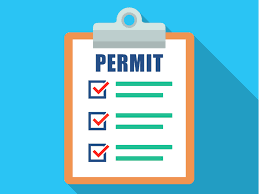Hot Work Permit at PT Arsitek Arupadatu Karawang
DOI:
https://doi.org/10.31943/gw.v14i2.492Keywords:
Pengawasa, Pemeriksaan, Pengendalian, Kecelakaan, kerjaAbstract
Hot work is a type of work with a high hazard because it has the potential to cause a fire and even an explosion. These events not only cause damage to assets but can also obliterate them. This research aims to find out the program, procedure, and implementation of hot work permit at PT Arsitek Arupadatu. The research method used is descriptive, which tries to describe the conditions currently occurring at PT Arsitek Arupadatu regarding hot work permits. This research was carried out on July 9 - August 9 2021 in the phase 3 development project (Expansion Factory) of PT Akashi Wahana Indonesia Karawang. Collecting data in this study using field observation methods, interviews and study of literature. Data were analyzed with qualitative methods. The data that has been collected is processed by comparing it with the Government Regulation number. 50 of 2012 (concerning the implementation of the Occupational Safety and Health Management System) and the 2019 edition of NFPA 51 B Standard (concerning Standards for fire prevention during welding, cutting and other hot work). The results of this study show that the program implemented at PT Arsitek Arupadatu regarding hot work permits is administrative checking. PT Arsitek Arupadatu has not documented procedures related to hot work. The hot work permit procedure is carried out based on routines that occur in the field, communication is only carried out using the oral method. The hot work permit at PT Arsitek Arupadatu has implemented PP No. 50 of 2012 concerning the application of Occupational Safety and Health Management System attachment II part 6.
Downloads

Downloads
Published
How to Cite
Issue
Section
License
Copyright (c) 2023 Ira Puspita Windiari, Ilal Izha Mahendra

This work is licensed under a Creative Commons Attribution 4.0 International License.
The use of non-commercial articles will be governed by the Creative Commons Attribution license as currently approved at http://creativecommons.org/licenses/by/4.0/. This license allows users to (1) Share (copy and redistribute the material in any medium) or format; (2) Adapt (remix, transform, and build upon the material), for any purpose, even commercially.









